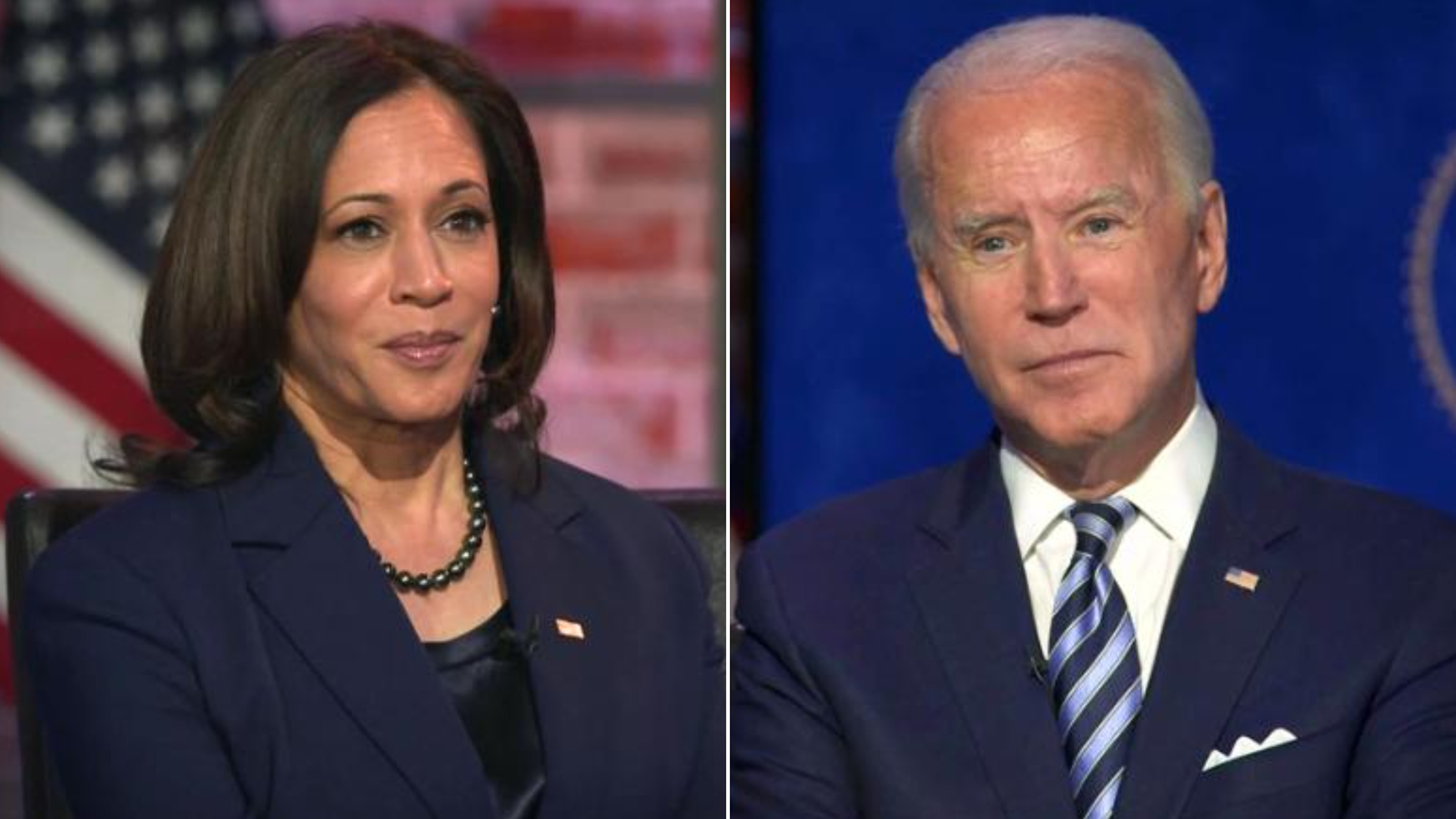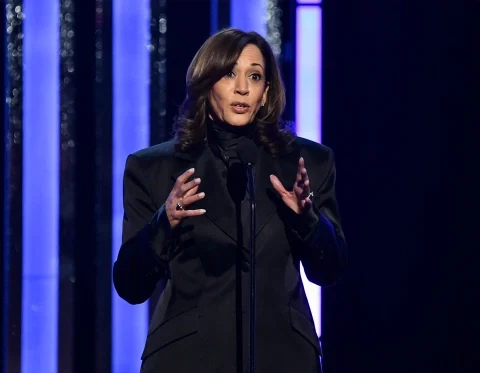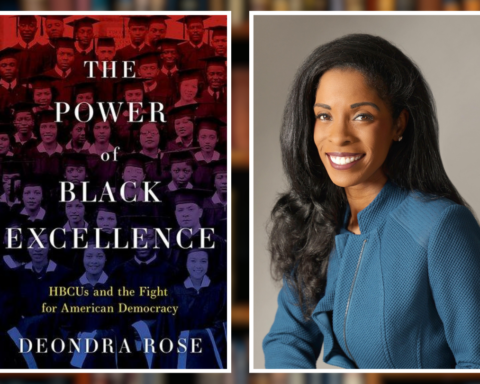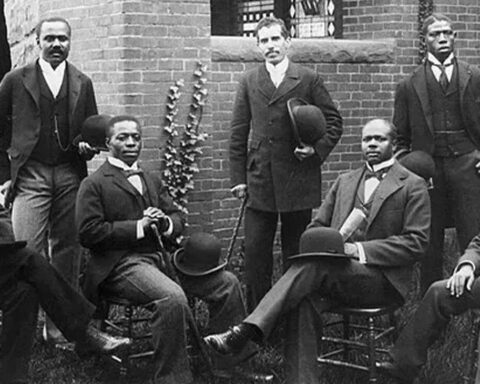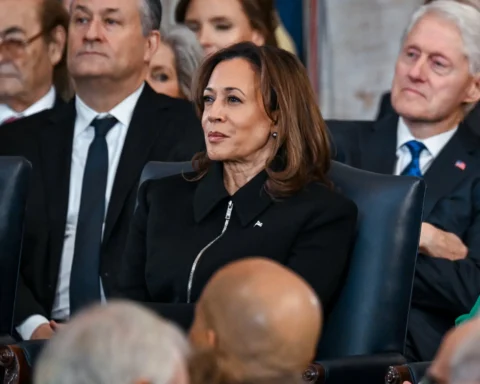Presidential candidate Kamala Harris campaigned aggressively on gun control reform — making the case that if Congress couldn’t act to make changes, the president could.
A California senator without much to lose as she fought to define herself in the 2020 Democratic primary, Harris at the time made bold claims about presidential power that then-candidate Joe Biden did not agree with and is unlikely as president to take on.
Biden on Tuesday urged Senate action on two House-passed bills on background checks and an assault weapons ban in the wake of two mass shootings and he pledged to do everything he could to “keep Americans safe.” But he did not pledge any unilateral executive actions.
Speaking hours before him, Harris called the deadly Colorado mass shooting “absolutely tragic,” during an event at the White House but stopped short of calling for gun reform when asked about the future of gun control.
A day later, however, the vice president told CBS News that Biden wasn’t ruling out taking executive action on guns, though she acknowledged, “if we really want something that is going to be lasting, we need to pass legislation.”
“It is time for Congress to act and stop with the false choices. This is not about getting rid of the Second Amendment. It’s simply about saying we need reasonable gun safety laws,” Harris said in an interview with the network.
It’s unlikely Harris will publicly disagree with Biden — the two are forging a close working relationship. Biden has said that he asked Harris “to be the last voice in the room” before big decisions, and those close to Harris say it’s likely she is utilizing that privilege to voice her own opinion, including on guns. But still, it’s unclear what Harris’ role now is in pushing Biden to adopt policies closer to those that were once her own.
“It doesn’t matter what her position might be at this point, she is part of an administration and he’s the president,” a Harris ally told CNN. “I think it’s important people understand that she’s in a different position. Not that her position has changed, she’s still who she is, but he is the Commander in Chief, she’s the vice president. And he sets the pace.”
The vice president’s office did not immediately respond to a CNN request for comment.
But during the presidential race, Harris pledged to unilaterally enact sweeping gun control measures if Congress didn’t act within her first 100 days in office. She asserted that she could ban the importation of all AR-15 style assault weapons, mandate “near universal background checks” requiring those who sell five or more guns per year to run background checks on all sales and revoke a gun dealer or manufacturer license if they broke the law and make them criminally liable with executive action.
More than 60 days into his tenure as president, Biden has not made a similar pledge.
Then-candidate Biden stressed that there was no “constitutional authority” to eliminate assault weapons by executive orders. When Harris was asked if he had a point during a 2019 debate, Biden jumped in to say, “Some things you can, many things you can’t.”
Harris responded: “I would just say, ‘Hey Joe, instead of saying, ‘No, we can’t,’ let’s say, ‘Yes we can.’ ”
Harris said that as a former prosecutor, she had seen more “autopsy photographs,” “attended more police funerals” and hugged more “mothers of homicide victims,” than she cared to say, fueling her passion for the issue. She often described knowing intimately what large capacity guns can do to a person’s body.
As a California prosecutor, she supported strengthening the state’s existing assault weapons ban and as attorney general, Harris often conducted high-profile and televised gun sweeps.
A former campaign aide said her passion came from being “fed up and angry” about the lack of action from Congress. The morning after the 2019 El Paso, Texas, shooting, they recalled Harris’ insistence to throw out her already prepared remarks for an event that morning to create a speech that “spoke to the moment.”
Kris Brown, the president of the Brady Campaign to Prevent Gun Violence, said that in her organization’s conversations with Harris’ presidential campaign about gun safety, she got the sense that “she cares deeply about it.”
“She understands the nuances of this issue, and I think (she’s) someone who will be there to have a seat at the table as issues around police reform and the nuances of gun violence prevention are debated,” Brown said.
Brown also said that her organization’s conversations about gun safety policy with the White House, spearheaded by Domestic Policy Council Director Susan Rice and Office of Public Engagement Director Cedric Richmond, are also “being coordinated between Joe Biden, Kamala Harris and their teams.”
Congress — specifically the Senate — still appears to be the stumbling block when it comes to gun reforms. Sen. Joe Manchin, a moderate Democrat from West Virginia, on Tuesday said he does not support the two gun reform bills the House passed last week — the very same Biden urged the Senate to pass. Instead, he pushed for a narrower bill that is sure to enrage progressive Democrats, an example of the uphill battle for passage in a Senate narrowly controlled by Democrats. They don’t currently have the votes in the 50-50 Senate to pass those bills or an assault weapons ban.
And Biden himself has a long and mixed history with guns and has been at the forefront of the gun reform flashpoints for more than three decades, including when Congress passed a 10-year assault rifle in 1994 to the current state of inaction.
As a candidate, Biden said on his first day in office he would send a bill to Congress repealing liability protection for gun manufacturers and close background check loopholes. He said he would work with Congress to ban the manufacture and sale of assault weapons and high-capacity magazines, forcing owners of assault-style rifles to either sell their firearms through a voluntary buyback program or register them with the federal government.
Harris has vocally supported all of those efforts including a buyback program. But her proposals as a candidate went further, saying she would do what she could with executive action as president.
“I’m prepared to take action by whatever tools I have at my disposal. My first attempt will be to work in a bipartisan way through Congress,” Harris said in October 2019. “They don’t need more than 100 days to figure this out, they’ve had years to figure it out. If they can’t figure it out in 100 days, I’m taking action with no apologies whatsoever.”
